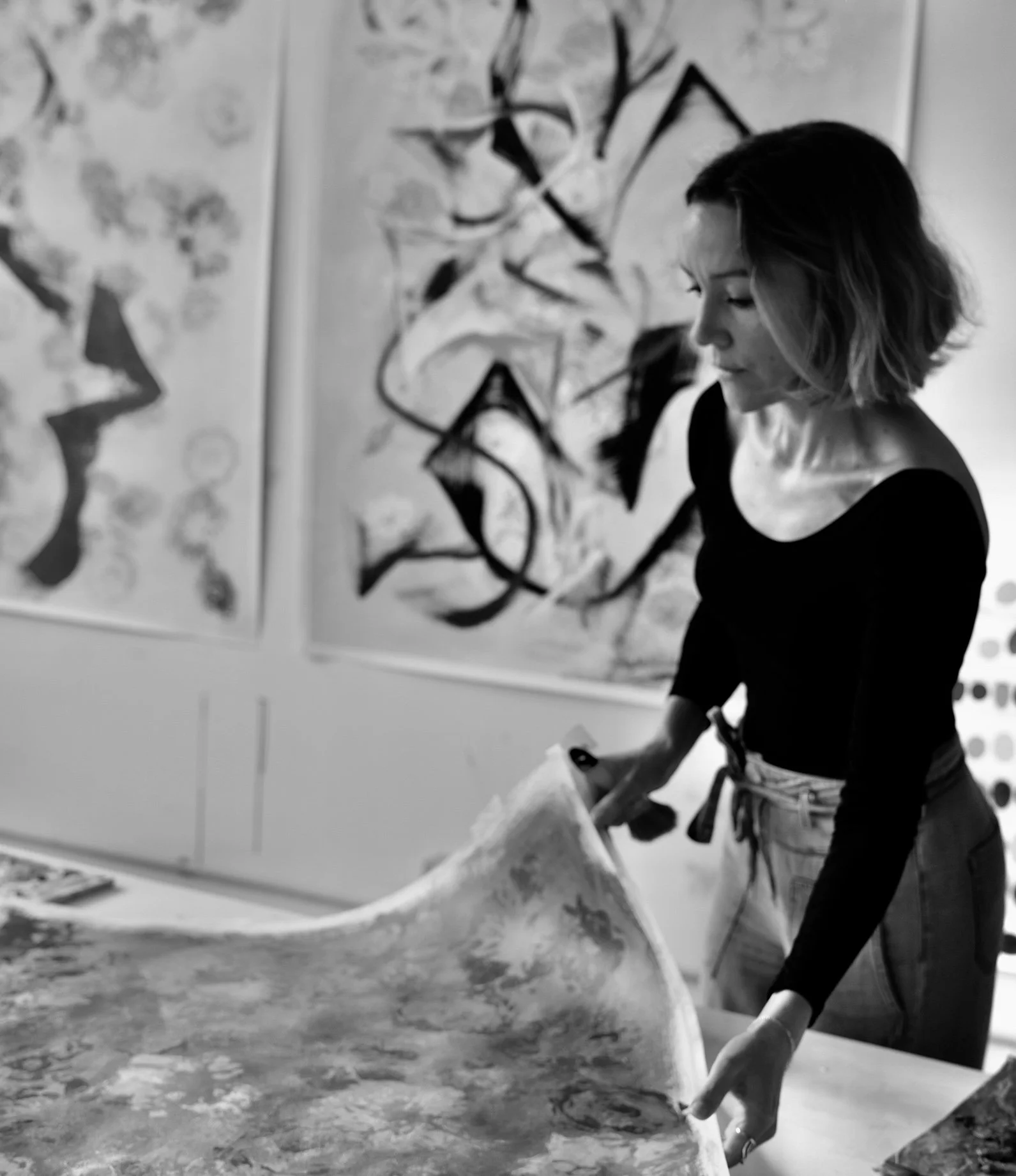Photo: Eglė Duleckytė
Raquel Cardoso is a Lisbon based artist creating work exploring the feminine.
Through intuitive movement, breath and meditation she delves into each piece using both natural materials and objects she collected in traditional domestic Portuguese settings. These materials are used to create patterns and textures which are then combined with fluid line, spontaneous mark-making and organic shapes. These abstract compositions reflect the many aspects of the feminine experience, both autonomous and imposed.
Raquel Cardoso holds an MSAE from the Massachusetts College of Art and Design in Boston, Massachusetts. She worked in arts education in the Boston Public Schools for eighteen years. Her teaching focused on themes of social justice, culturally responsive teaching, and anti-racist education in the arts classroom. She now resides in her native country of Portugal, where she is focusing on her own art practice.
Raquel has exhibited in the United States and Portugal. Her work is part of private collections internationally.
Mark-making
Why does making a mark on a sheet of paper send such a rush through my body? A sense of excitement and declaration. The Oxford dictionary defines a “mark” as a “visible impression or stain”, “a line, figure, or symbol made as an indication or record of something”.
Something. Is it the mark itself or is it the “something” that the mark represents? Not everyone gets to make a mark. My ancestors didn’t make marks like this.
My grandmother was never even given the chance to make the marks that would form the letters of her name. At the end of her life I witnessed her deep concentration as she traced J-o-a-q-u-I-n-a that I had written on paper for her. She felt the rush too.
So then these marks aren’t simply lines and impressions made on paper with brushes and colorful paint. They are “something” more.
They are remnants and pieces of us. They are symbols of creation, autonomy, freedom. Having the space to create these marks is then necessary.
To some, even revolutionary.
Raquel Cardoso
2021
